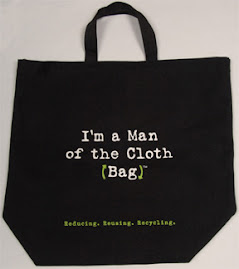We should all live a lifestyle our grandmothers would recognize: be part of a community, be kind to neighbors, read books, play games, enjoy life’s simple (and most divine) pleasures, and prepare wholesome, nourishing food—real food—for you and your family.
Would your grandmother recognize your over-stuffed day planner, your one-hour commute, the processed chemicals disguised as food lurking in your cabinets? And what would she think of all the plastic in your kitchen?
Chances are, your grandmother’s kitchen was filled with glass: jars, bottles, cups, bowls, dishes, even plates. Turns out, glass is the safest product to keep and store food . . . unless you drop it.
I have no doubt that plastic was created with the best intentions when too many glass bowls shattered on kitchen floors. Touted, no doubt, as a life saver, it’s now apparent to everyone but the FDA that plastics with bisphenol A (BPA)—take baby bottles, as an example—are life destroyers because BPA is a hormone disruptor with great potential for future risks to human health.
I just read this AP article about how “Government toxicologists have reiterated safety concerns about a chemical used in baby bottles and food containers, just weeks after the Food and Drug Administration declared the substance safe.”
Personally, I’m surprised toxicologists who get a pay check from the current government were (1) allowed to do the study and (2) allowed to release the results. But that’s another issue.
“The FDA said it would consider the new report as it continues reviewing bisphenol.” Consider? Well, how very kind of them. Until then, would you feel good about feeding a baby from a BPA bottle? Would you feel good about microwaving your soup in a BPA bowl?
Now, get even more outraged:
“Several major retailers—including Wal-Mart Stores Inc. and Toys R Us Inc.—have said they would stop selling baby bottles made with the chemical next year. And smaller companies like Eveflo and BornFree have ramped up production of glass baby bottles as a bisphenol-free alternative. Canada has said it intends to ban the use of the chemical in baby bottles, and state and federal lawmakers have introduced legislation to ban bisphenol in U.S. children's products. More than 6 billion pounds of bisphenol are produced in the U.S. each year by Dow Chemical, Bayer AG and other manufacturers.”
Call me suspicious of bureaucracy, but it seems clear to me (as clear as plastic) that Dow Chemical and Bayer AG have purchased and are pulling the FDA’s strings.
By the way, if you have a baby and are looking for glass baby bottles, read this posting by my green guru.
Question of the blog: Will you contact your representatives and let them know you want BPA banned?
Friday, September 5, 2008
Do You Trust the FDA?
Subscribe to:
Post Comments (Atom)




No comments:
Post a Comment